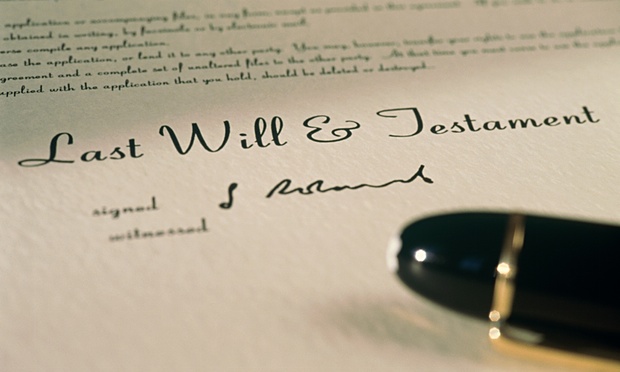A will can be drafted to cover any individual, unique circumstance.
Here are some examples of wills:
- Gift of an entire estate to one person, making that person executor/trix with a gift over in the event that that person dies within a stated period, for example 30 days, of the death of the testator
- Gift of an entire estate to individuals, including children, in equal shares for their own benefit and use absolutely
- Gift of an entire estate to brothers and sisters and to the children of a pre-deceased sibling
- Gift of an entire estate to parents
- Creating a settlement of property on parents by giving them a life interest for their joint lives with remainder over to brothers and sisters
- A will settling property on a discretionary trust for the benefit of parents during their joint lives with remainder to brothers and sisters
- A will making provision for an elderly brother or sister
- A will leaving everything to spouse or partners with substitutional provisions for children in the event that the spouse passes away at the same time in a catastrophic accident eg car crash or airplane going down
- A will leaving some of the estate to spouse or partner with residue to children once they reach a certain age eg 18/21/25, but trustees having discretion until the children reach the age
- A will leaving everything to spouse/partners and then to Trustees on a discretionary trust
- A will leaving everything to Trustees to be held on discretionary trust
- A will leaving everting to children after the death of a spouse, with a discretionary trust to benefit a child with a mental incapacity or disability
- A will of a single person/divorced/widow/widower with no children leaving all to a large extended family with residue going to grandnieces and nephews who are all under 18 years
- A will leaving everything to one person for life with an absolute gift over to someone else
- A will leaving everything to a spouse for life with gift over to children
- A will for an unmarried couple with minor children, providing that the will is not to be revoked on marriage of the couple
- A will leaving everything to children and grandchildren providing for the use of all possible CAT threshold exemptions.
These wills show you what is possible in providing for your loved ones, and they can be adapted easily to match your particular circumstance.
The 17 types of wills above is not an exhaustive list, by any means.
Let me say that again: just because I have listed 17 types of wills does not mean that you cannot have a will made for your particular set of circumstances.
Also, you should also consider changing your will, if you have one, if your circumstances change, as they inevitably will during your life.
You might also be interested in
- What happens when you don’t make a will
- 6 critical reasons why you should make a will
- How to make a valid will
- Children in wills-what you should know
Too busy to make a will?



